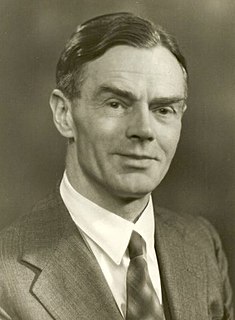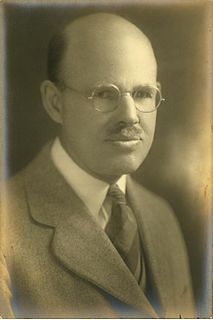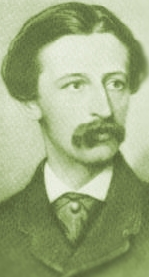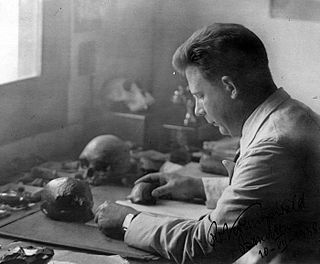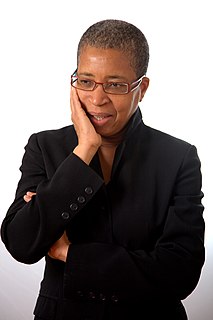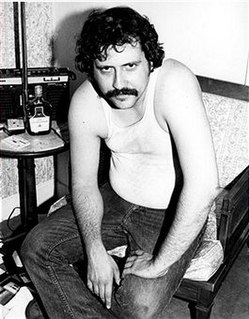A Quote by Owen Barfield
There is no surer or more illuminating way of reading a man's character, and perhaps a little of his past history, than by observing the contexts in which he prefers to use certain words.
Related Quotes
Man is more courageous, pugnacious, and energetic than woman, and has a more inventive genius. His brain is absolutely larger, but whether relatively to the larger size of his body, in comparison with that of woman, has not, I believe been fully ascertained. In woman the face is rounder; the jaws and the base of the skull smaller; the outlines of her body rounder, in parts more prominent; and her pelvis is broader than in man; but this latter character may perhaps be considered rather as a primary than a secondary sexual character. She comes to maturity at an earlier age than man.
In some contexts in Pakistan maybe a beard is negative. It depends. And in some contexts in America maybe a beard is positive. I think there's certainly lots of hipster communities where having a beard makes me look a little bit less like a, you know, middle-aged fuddy-duddy. And there's some places in Pakistan where having a beard, you know, certain corporate contexts, certain social contexts, where it's not an advantage to have a beard.
Any man will go considerably out of his way to pick up a silver dollar; but here are golden words, which the wisest men of antiquity have uttered, and whose worth the wise of every succeeding age have assured us of; and yet we learn to read only as far as Easy Reading, the primers and classbooks, and when we leave school, the Little Reading, and story books, which are for boys and beginners; and our reading, our conversation and thinking, are all on a very low level, worthy only of pygmies and manikins.
The bourgeois treasures nothing more highly than the self.... And so at the cost of intensity he achieves his own preservation andsecurity. His harvest is a quiet mind which he prefers to being possessed by God, as he prefers comfort to pleasure, convenience to liberty, and a pleasant temperature to that deathly inner consuming fire.
Man did not address his inquiries to the earth on which he stood until a remarkably late stage in the development of his desire for knowledge. And the answers he received to the questions, "Where do I come from?", "What is man?", although they made him poorer by a few illusions, gave him in compensation a knowledge of his past that is vaster than he could ever have dreamed. For it emerged that the history of life was his history too.
I have discovered a universal rule which seems to apply more than any other in all human actions or words: namely, to steer away from affectation at all costs, as if it were a rough and dangerous reef, and (to use perhaps a novel word for it) to practise in all things a certain nonchalance [sprezzatura] which conceals all artistry and makes whatever one says or does seem uncontrived and effortless.
Human life has not a surer friend, nor oftentimes a greater enemy, than hope. It is the miserable man's god, which in the hardest gripe of calamity never fails to yield to him beams of comfort. It is the presumptuous man's devil, which leads him a while in a smooth way, and then suddenly breaks his neck.
Kids use words in ways that release hidden meanings, revel the history buried in sounds. They haven't forgotten that words can be more than signs, that words have magic, the power to be things, to point to themselves and materialize. With their back-formations, archaisms, their tendency to play the music in words--rhythm, rhyme, alliteration, repetition--children peel the skin from language. Words become incantatory. Open Sesame. Abracadabra. Perhaps a child will remember the word and will bring the walls tumbling down.
A man's magic demonstrates what sort of person he is, what is held most deeply inside of him. There is no truer gauge of a man's character than the way in which he employs his strength, his power. I was not a murderer. I was not like Victor Sells. I was Harry Blackstone Copperfield Dresden. I was a wizard. Wizards control their power. They don't let it control them. And wizards don't use magic to kill people. They use it to discover, to protect, to mend, to help. Not to destroy.
I'll probably never produce a masterpiece, but so what? I feel I have a Sound aborning, which is my own, and that Sound if erratic is still my greatest pride, because I would rather write like a dancer shaking my ass to boogaloo inside my head, and perhaps reach only readers who like to use books to shake their asses, than to be or write for the man cloistered in a closet somewhere reading Aeschylus while this stupefying world careens crazily past his waxy windows toward its last raving sooty feedback pirouette.
There is a note that comes into the human voice by which you may know real weariness. It comes when one has been trying with all his heart and soul to think his way along some difficult road of thought. Of a sudden he finds himself unable to go on. Something within him stops. A tiny explosion takes place. He bursts into words and talks, perhaps foolishly. Little side currents of his nature he didn't know were there run out and get themselves expressed. It is at such times that a man boasts, uses big words, makes a fool of himself in general.
